The problem of psychology is more important than the problem of consciousness.


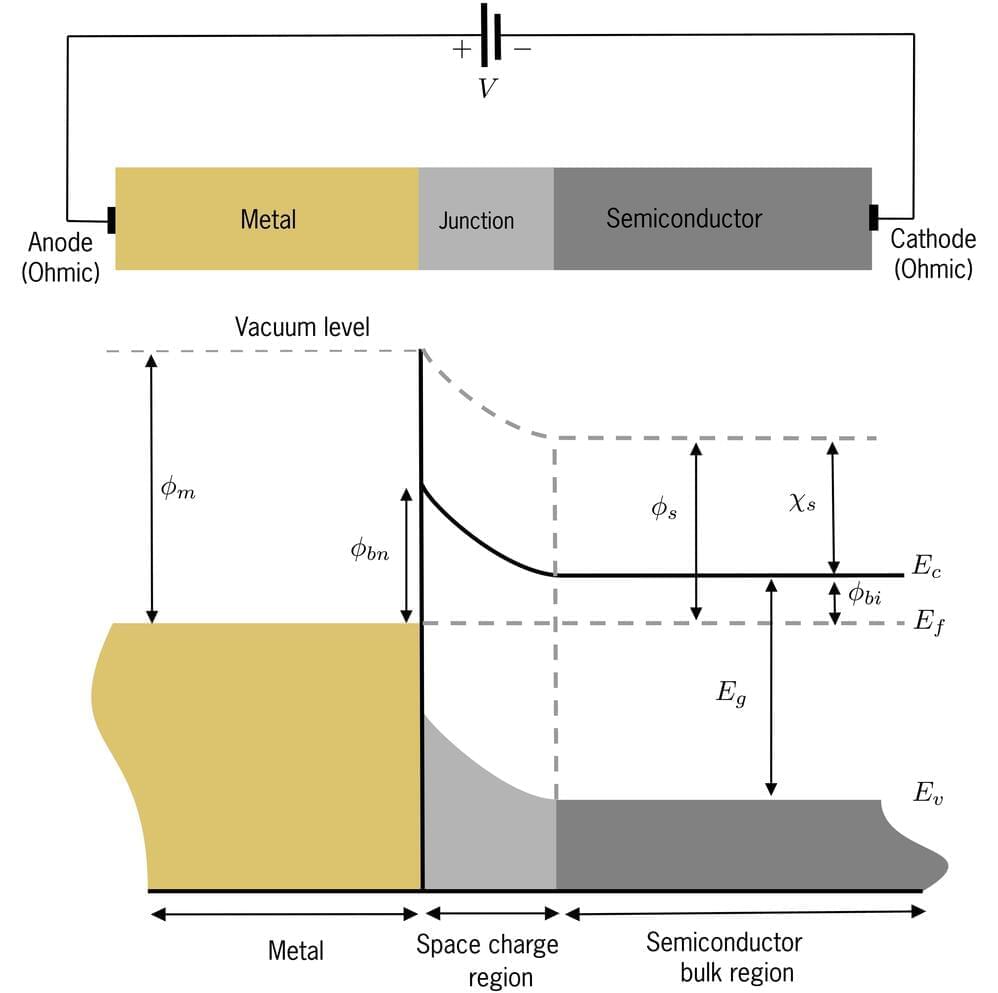
Envision a realm where light can be meticulously controlled and manipulated at minuscule scales, unlocking unprecedented potentials for nanotechnology and quantum information technology. Recent breakthroughs in quantum research have propelled us closer to a reality that may be more achievable than previously realized.
In this article, we delve into the domain of surface plasmon polaritons (SPPs) and the vast possibilities they offer in revolutionizing the field of quantum optics.
Picture a serene lake on a sunny day. As you drop a small stone into the water, it sets in motion gentle ripples that traverse the surface. Now, imagine light as akin to those undulating ripples. When light encounters the interface of a metal and a dielectric material, it has the power to generate waves, much like the ripples on the lake. This phenomenon is even more intriguing because these light waves can interact with the metal’s microscopic constituents, such as electrons. Remarkably, the light waves and electrons synchronize their oscillations, giving rise to an SPP wave.

Last year, the chemist – who is an emeritus professor at the University of Strasbourg – published a book titled The Elegance of Molecules. In the pages, he lets his imagination run wild. “Over time, most of the chemical reactions that govern nature could be controlled or imitated by a nanorobot: counter-offensives by the immune system, the production of antibodies, hormones on demand, the repairing of damaged cells and organs [or] the correction of anomalies in the genetic text,” Sauvage writes. “None of this will belong in the realm of science fiction in the long-term.”
Sitting in the hotel’s restaurant, however, the researcher’s realism contrasts with his futuristic fantasy. “Today, we can’t do much. Molecular machines are a somewhat new concept: we can make molecules that move as we choose [and] we can make a fairly complex molecule perform a rotary motion. Or we can make it behave like a muscle, stretching and contracting. The applications will arrive in the future, but we’re not there yet,” he stresses.
The French researcher has been developing these molecular muscles since 2002 alongside a Spanish chemist – María Consuelo Jiménez – from the Polytechnic University of Valencia. “The first thing was to show that we can make a molecule that contracts and stretches. Now, you can think of making materials – especially fibers – that can contract and stretch. Perhaps artificial muscles could be made to replace damaged muscles in people, but that will be in the future. At the moment, there are no real applications,” Sauvage clarifies.
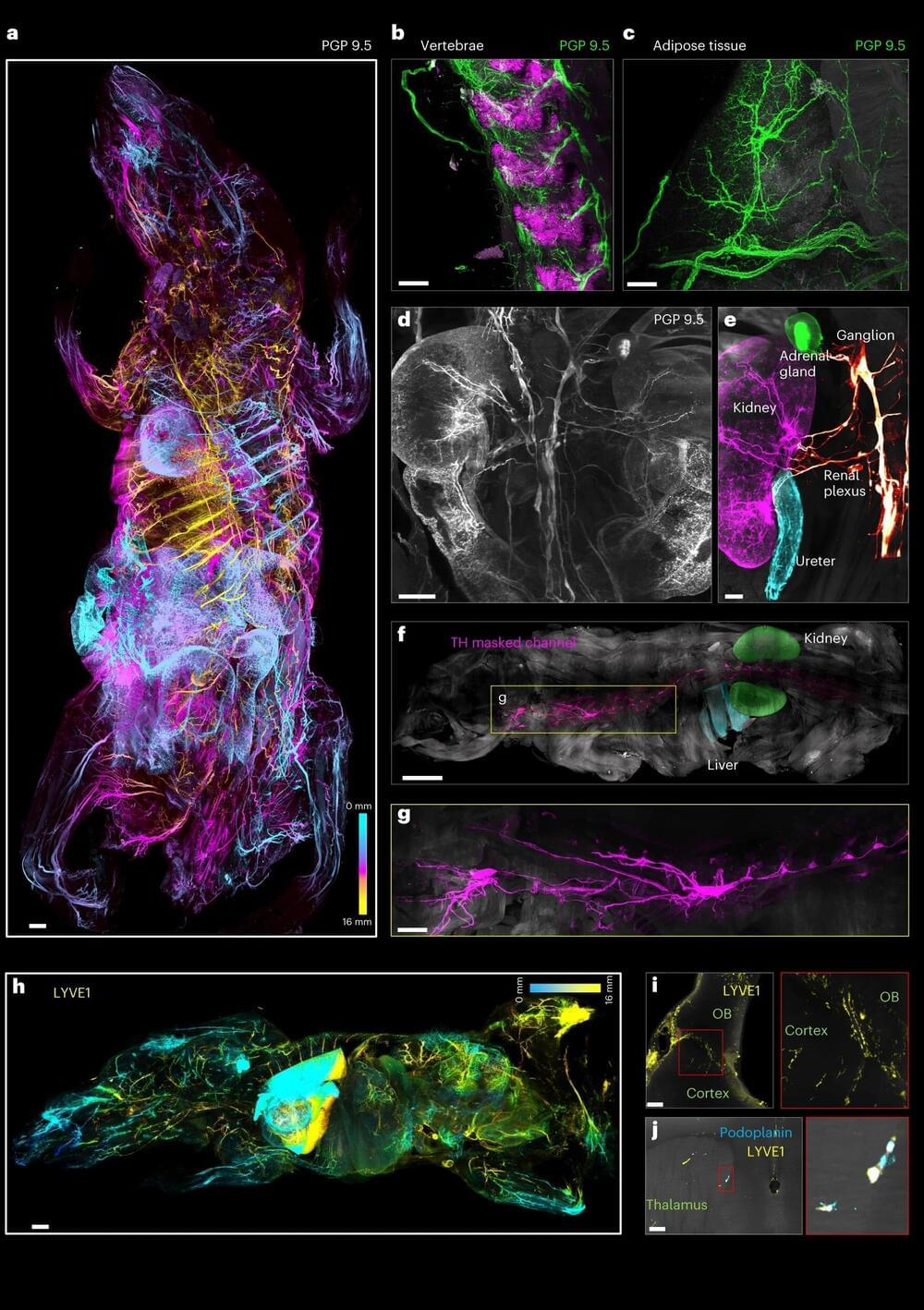
Researchers developed a new method called wildDISCO that uses standard antibodies to map the entire body of an animal using fluorescent markers. This revolutionary technique provides detailed 3D maps of structures, shedding new light on complex biological systems and diseases. WildDISCO has the potential to transform our understanding of intricate processes in health and disease and paves the way for exciting advancements in medical research. This technology was now introduced in Nature Biotechnology.
In the past, scientists relied on genetically modified animals or specialized labels to make specific structures and cells of interest visible in the entire body of an animal. But these approaches are expensive and time-consuming to create, especially when it comes to body-wide systems such as the nervous system.
A team of scientists from Helmholtz Munich, the LMU University Hospital and the Ludwig-Maximilians Universität München (LMU) now introduced a new method called wildDISCO, which makes use of standard antibodies to map whole bodies of mice. This ultimately enables the creation of detailed three-dimensional maps of normal and diseased structures in mammalian bodies in an easy-to-use and cost-efficient way.
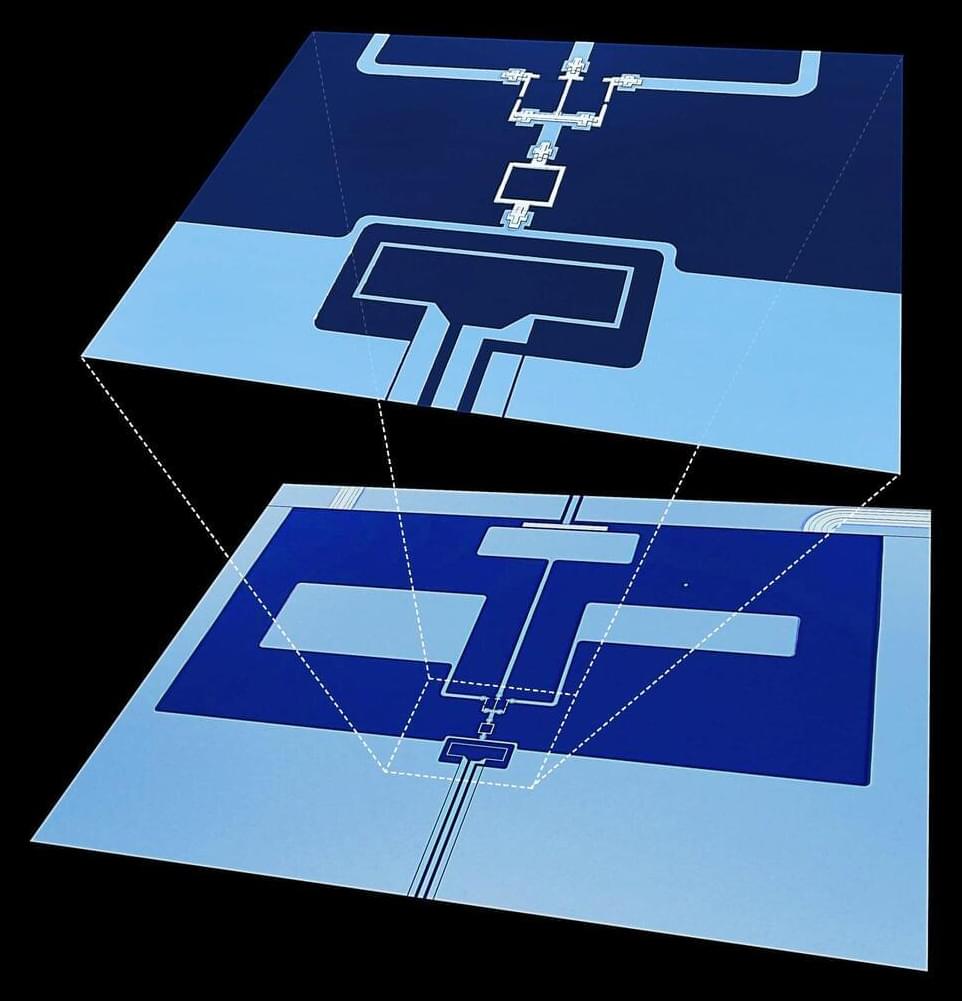
What good is a powerful computer if you can’t read its output? Or readily reprogram it to do different jobs? People who design quantum computers face these challenges, and a new device may make them easier to solve.
The device, introduced by a team of scientists at the National Institute of Standards and Technology (NIST), includes two superconducting quantum bits, or qubits, which are a quantum computer’s analog to the logic bits in a classical computer’s processing chip. The heart of this new strategy relies on a “toggle switch” device that connects the qubits to a circuit called a “readout resonator” that can read the output of the qubits’ calculations.
This toggle switch can be flipped into different states to adjust the strength of the connections between the qubits and the readout resonator. When toggled off, all three elements are isolated from each other. When the switch is toggled on to connect the two qubits, they can interact and perform calculations. Once the calculations are complete, the toggle switch can connect either of the qubits and the readout resonator to retrieve the results.

This was a surprise. Animals have brain maps for vision and touch, but these are built from visual images and touch receptors that map onto the brain through direct point‑to‑point projections. With ears, it’s entirely different. The brain compares information received from each ear about the timing and intensity of a sound and then translates the differences into a unified perception of a single sound issuing from a specific region of space. The resulting auditory map allows owls to “see” the world in two dimensions with their ears.
This proved to be a big leap toward understanding how the brain of any animal, including humans, learns to grasp its environment through sound. Think of it. Standing in a forest, you hear the crack of a falling branch or the rustle of a deer’s step in the dry leaves. Your brain calculates the time and intensity of sound to determine where it’s coming from. Owls do this task with incredible speed and accuracy. Each cochlea in the owl provides the brain with the precise timing of the sound reaching that ear within 20 microseconds. This determines how accurately the brain can calculate the interaural time difference, which in turn determines the accuracy of the localization of a sound in the azimuth. “The precision in microseconds provided by the owl cochlea is better than in any other animal that has been tested,” says Köppl. “We have big heads, so the interaural time differences are larger, making the task for cochlea and brain easier. In a nutshell, it is the combination of a small head and very precise localization that makes the owl unique.”
And here’s a finding to drop the jaw. José Luis Peña, a neuroscientist at the Albert Einstein College of Medicine, and his collaborators have discovered that the sound localization system in a barn owl’s brain performs sophisticated mathematical computations to execute this pinpointing of prey. The space‑specific neurons in the owl’s specialized auditory brain do advanced math when they transmit their information, not just adding and multiplying incoming signals but averaging them and using a statistical method called “Bayesian inference,” which involves updating as more information becomes available.
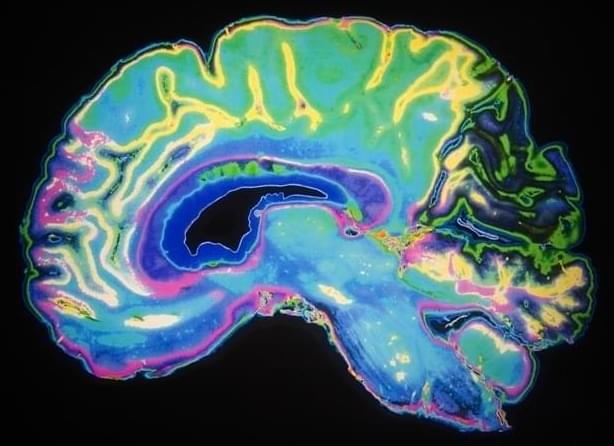
That experiences leave their trace in the connectivity of the brain has been known for a while, but a pioneering study by researchers at the German Center for Neurodegenerative Diseases (DZNE) and TUD Dresden University of Technology now shows how massive these effects really are. The findings in mice provide unprecedented insights into the complexity of large-scale neural networks and brain plasticity. Moreover, they could pave the way for new brain-inspired artificial intelligence methods. The results, based on an innovative “brain-on-chip” technology, are published in the scientific journal Biosensors and Bioelectronics.
The Dresden researchers explored the question of how an enriched experience affects the brain’s circuitry. For this, they deployed a so-called neurochip with more than 4,000 electrodes to detect the electrical activity of brain cells. This innovative platform enabled registering the “firing” of thousands of neurons simultaneously. The area examined – much smaller than the size of a human fingernail – covered an entire mouse hippocampus. This brain structure, shared by humans, plays a pivotal role in learning and memory, making it a prime target for the ravages of dementias like Alzheimer’s disease. For their study, the scientists compared brain tissue from mice, which were raised differently. While one group of rodents grew up in standard cages, which did not offer any special stimuli, the others were housed in an “enriched environment” that included rearrangeable toys and maze-like plastic tubes.
“The results by far exceeded our expectations,” said Dr. Hayder Amin, lead scientist of the study. Amin, a neuroelectronics and nomputational neuroscience expert, heads a research group at DZNE. With his team, he developed the technology and analysis tools used in this study. “Simplified, one can say that the neurons of mice from the enriched environment were much more interconnected than those raised in standard housing. No matter which parameter we looked at, a richer experience literally boosted connections in the neuronal networks. These findings suggest that leading an active and varied life shapes the brain on whole new grounds.”
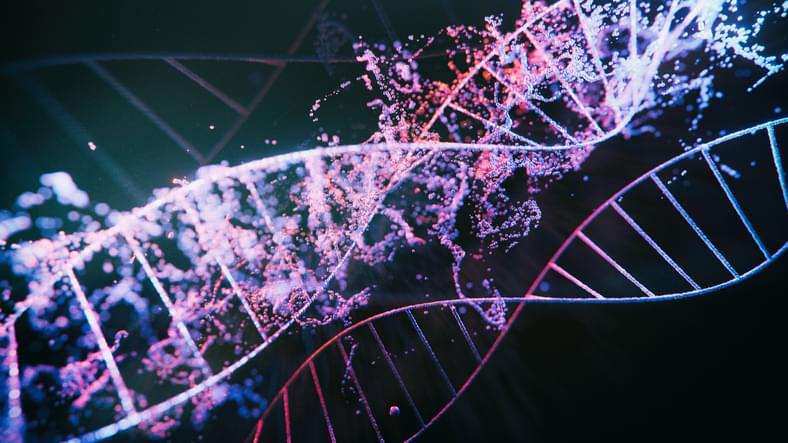
With triplex origami, scientists can achieve a level of artificial control over the shape of double-stranded DNA that was previously unimaginable, thereby opening new avenues of exploration, according to the Aarhus University researchers. It has recently been suggested that triplex formation plays a role in the natural compaction of genetic DNA and the current study may offer insight into this fundamental biological process.
Potential in gene therapy and beyond
The work also demonstrates that the Hoogsteen-mediated triplex formation shields the DNA against enzymatic degradation. Thus, the ability to compact and protect DNA with the triplex origami method may have large implications for gene therapy, wherein diseased cells are repaired by encoding a function that they are missing into a deliverable piece of double-stranded DNA.
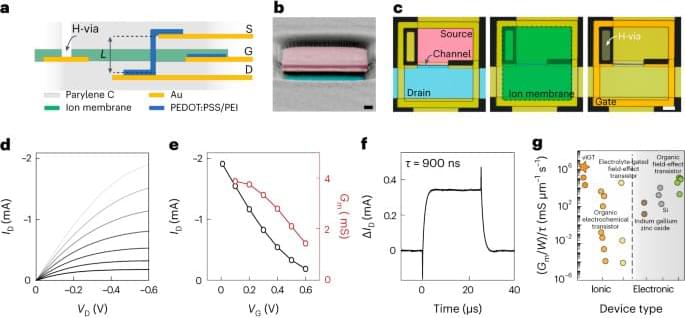
Organic electronic devices enhance biocompatibility, but have to rely on silicon-based technologies to improve limited speed and integration. This problem is overcome by creating a stand-alone, wireless, conformable, fully organic bioelectronic device with high electronic performance, scalability, stability and conformability in physiologic media.
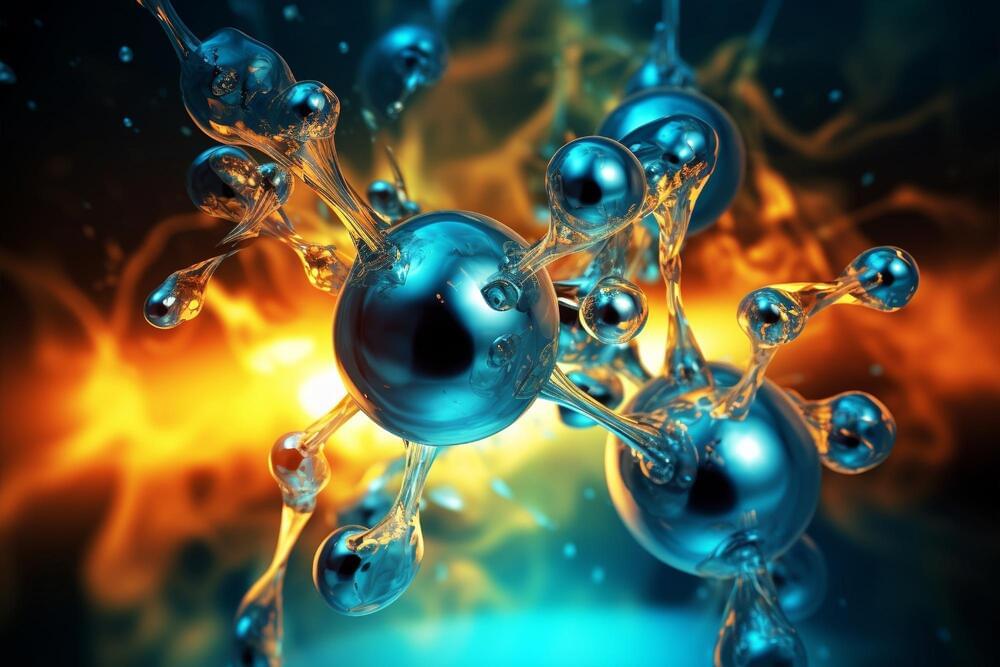
Japanese scientists have discovered a compound, ethylammonium lead iodide, which can store and release ammonia safely and efficiently. This finding holds potential for ammonia’s role as a carbon-free hydrogen carrier, contributing to the transition towards a decarbonized society.
Researchers at the RIKEN Center for Emergent Matter Science (CEMS) in Japan have discovered a compound that uses a chemical reaction to store ammonia, potentially offering a safer and easier way to store this important chemical. This discovery, published in the Journal of the American Chemical Society on July 10, makes it possible not only to safely and conveniently store ammonia, but also the important hydrogen is carries. This finding should help lead the way to a decarbonized society with a practical hydrogen economy.
For society to make the switch from carbon-based to hydrogen-based energy, we need a safe way to store and transport hydrogen, which by itself is highly combustible. One way to do this is to store it as part of another molecule and extract it as needed. Ammonia, chemically written as NH3, makes a good hydrogen carrier because three hydrogen atoms are packed into each molecule, with almost 20% of ammonia being hydrogen by weight.